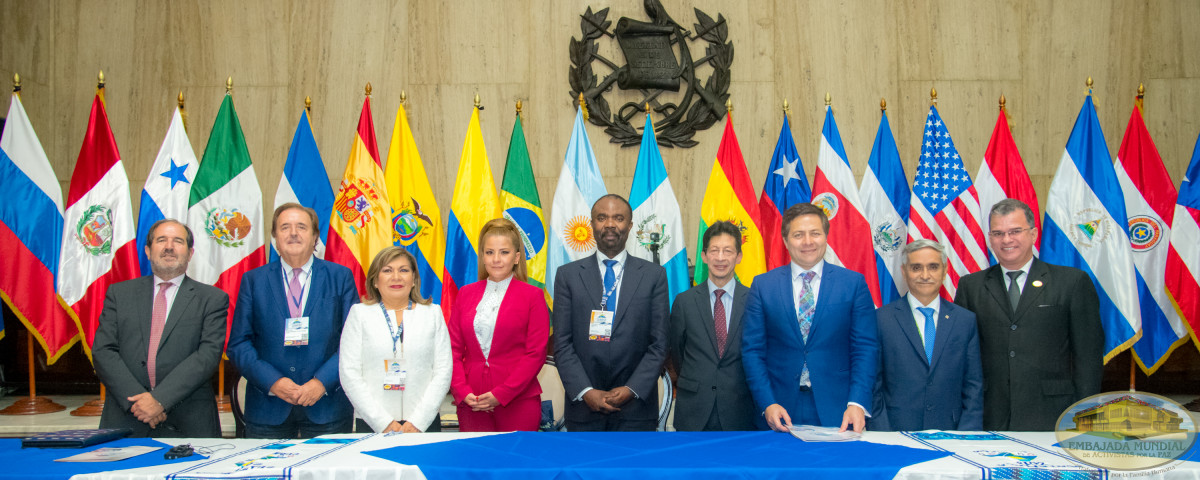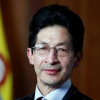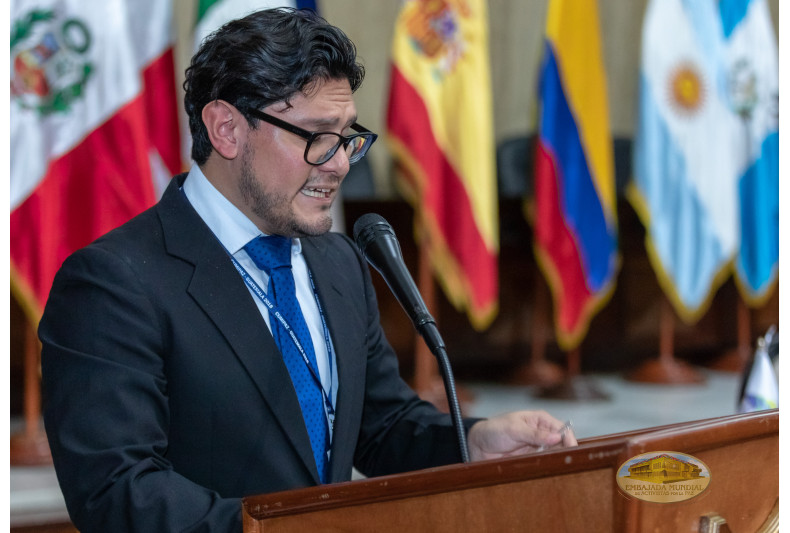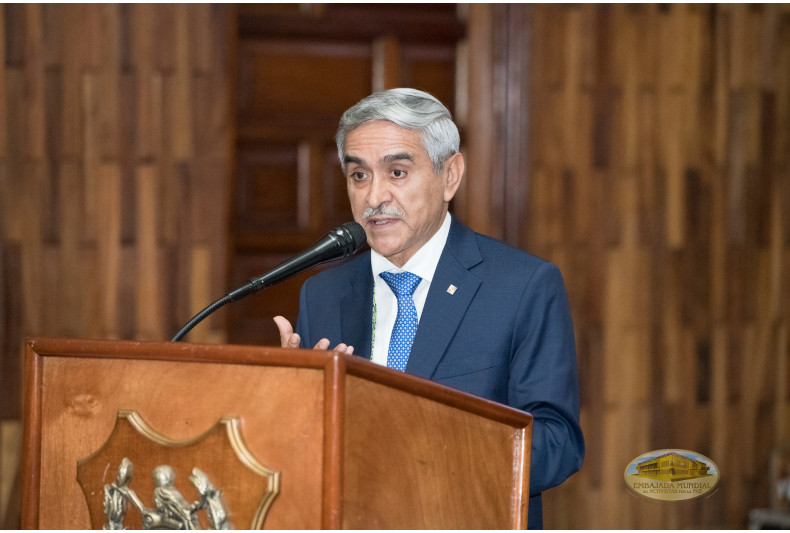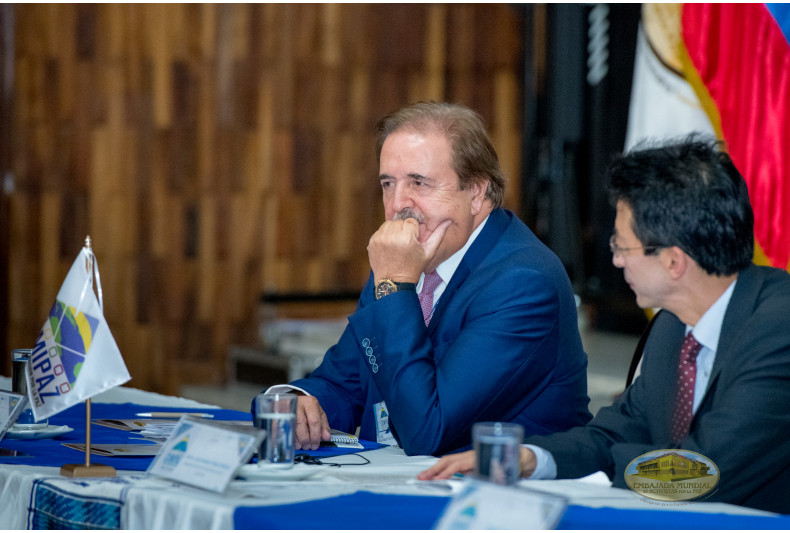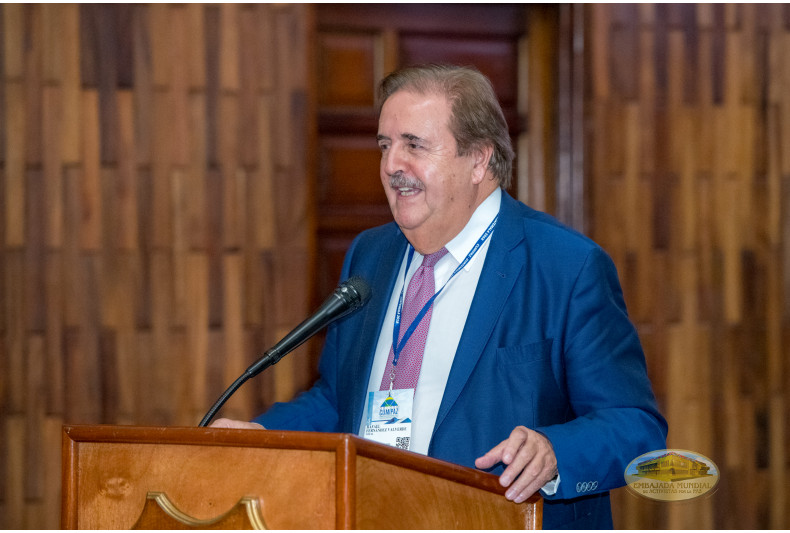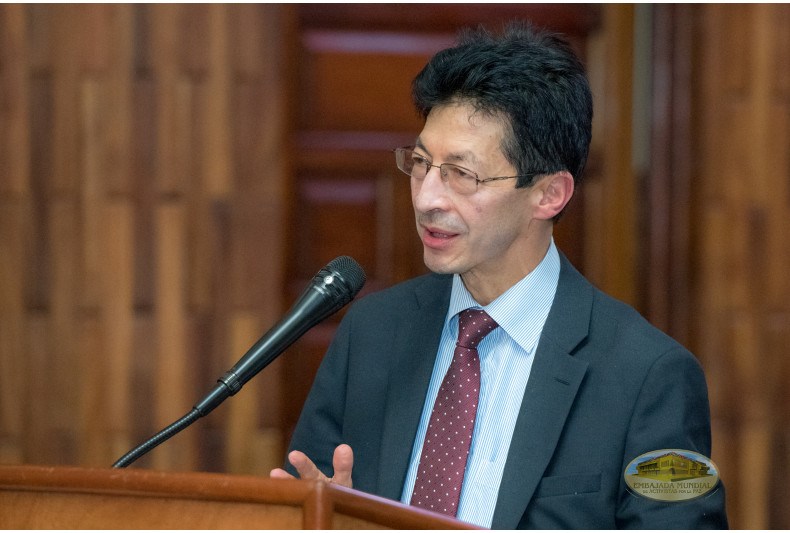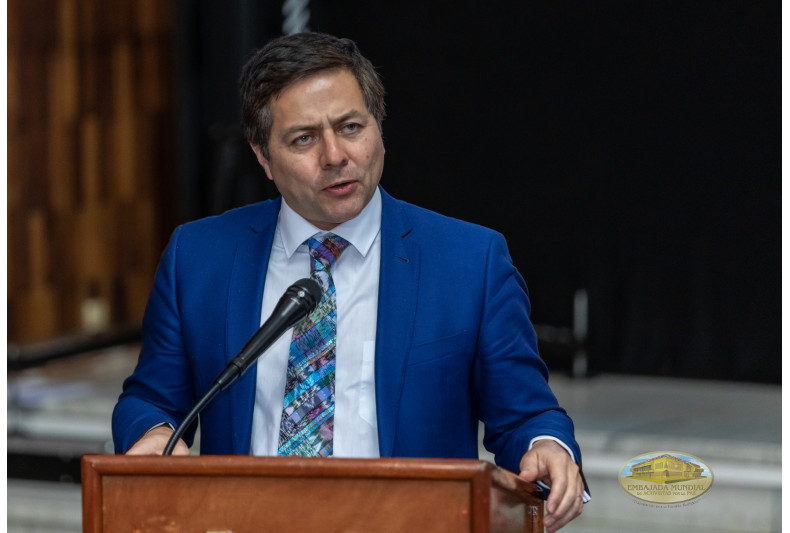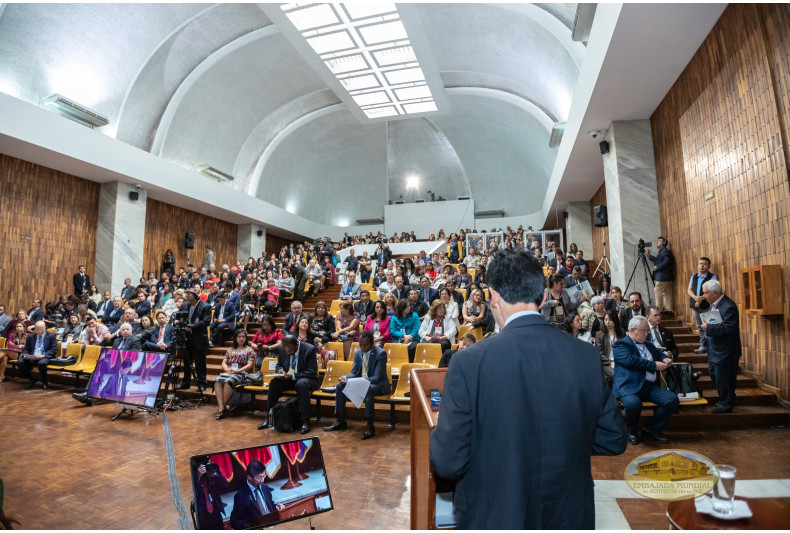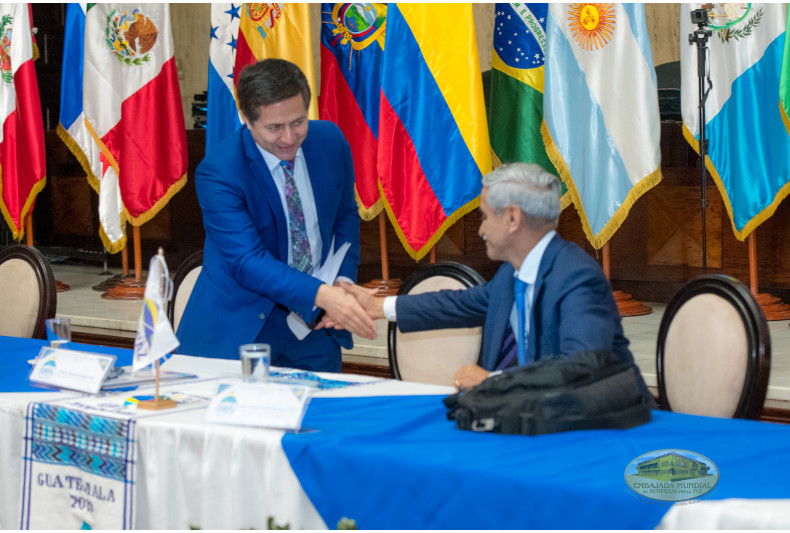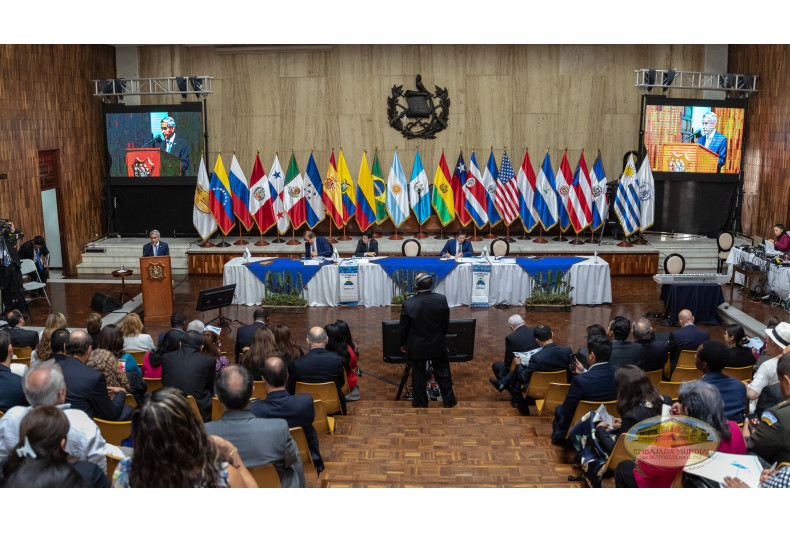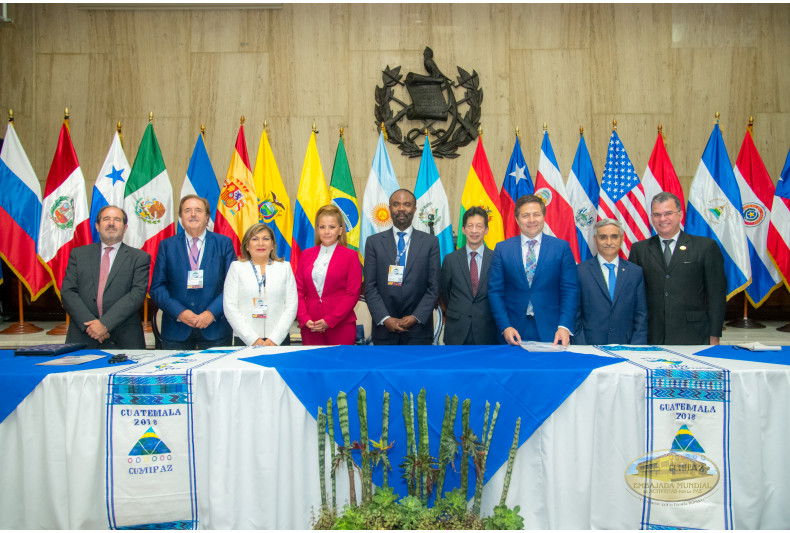Environmental promoters: "We must act with the power of justice"
See GalleryThe Justice and Democracy Session of the Peace Integration Summit, CUMIPAZ 2018, had a space dedicated to the environment, under the theme "Environmental Justice" developed by ambassadors, judges and distinguished environmental promoters, in the second panel of the session.
The specialists of the judicial area presented their papers with the aim of promoting environmental justice as a value generator of peace, promoting proposals and actions aimed at the preservation of Mother Earth.
The environmental lawyer, Juan Manuel de la Cruz, from Guatemala, was the moderator of the panel, who led the activity in consultation with experts on how to overcome the barriers that may hinder access to environmental justice.
Rafael Fernández Valverde, member of the Environmental Justice Commission of the Ibero-American Summit, focused on the issue of gaining access to environmental justice, said that international tribunals should begin to dialogue in a field where they are understandable for the rest of the ordinary judges.
Fernandez said:
"To clarify the scope of each of these courts and not, say, to place these international court in a superiority regime, but rather in a sphere of competence or of an advisory nature".
Likewise, they considered, among other aspects, that the principle of non-regression should be applied to protect the environment. He pointed out that this is one of the most essential principles, and that the jurisprudence of the different countries should advance in that sense.
"The principle of non-regression in environmental protection, guarantees that certain areas considered essential protection, continue in that situation," he said.
.
Educate in environmental matters
For his part, Luis Armando Tolosa Villabona, magistrate of the Supreme Court of Justice in Colombia explained that there are several central barriers in the treatment of environmental problems, among them: Lack of education in environmental matters and the issue of justice, ignorance of the seriousness of environmental problems.
In his presentation, he stated:
"There are serious problems that affect the environment, among them the public problem, the lack of environmental education; the ignorance of the seriousness of the environmental problems and the destruction of the ozone layer".
Tolosa pointed out that other serious problems in the area of environmental justice are: the disparity of criteria for resolving conflicts and the lack of clear regulations in the States, in the constitutions and in the legislation that strongly advocates effective instruments for the protection of the environment.
In this regard, he said that it should reflect and take concrete measures to solve environmental problems and said that judges should be aware of their legal actions, so they can demand that governments promote the care and protection of the environment.
A collective legal good
OAS Goodwill Ambassador for Environmental Justice, Duberlí Apolinar Rodríguez Pineo, in his presentation mentioned that, according to his criteria, the barriers that hinder environmental justice. He stated:
"We do not have a specialized justice in environmental matters."
"It is not possible that of 3080 judges in Peru, we only have two courts specialized in environmental matters."
Rodríguez reported that Peru has a population of 32 million inhabitants, of which 10 million belong to indigenous communities, which are the ones that present the most social conflicts, and those situations have their origin in environmental problems.
Rodriguez affirmed:
"What we must do is have our governments, our leaders, take a political decision: to defend the environment (...) We have an Environment Law, we have a Penal Code, we have all that, but the issue is, in practice, what we do to defend our environment. If there is no political decision at the highest level, everything will be pure literature. "
He also emphasized the use of Sanctioning Administrative Law, addressing the criminal risk policy and adopting the criminal law to protect the environment as a collective legal right.
We are responsible for environmental welfare
Daniel Guevara Cortés, Minister President of the First Environmental Court of Chile, considered that the conviction of a judge is called to have a deep sense of respect and commitment to Mother Earth, for the protection of the human species without breaking the ecological balance. Guevara said:
"There are essential ecological balances that demand that peace, that environmental peace bring dignity and protection to life in the broadest sense of it."
Guevara mentioned that there are international treaties on environmental matters, which often turn out to be simply declarative, and stressed the importance of specifying the judicial rulings:
"Every judge that solves a controversy in environmental matters understands its duty to apply the entire legal system in a review of maximum jurisdictional, we cannot act half-heartedly, we must act with the power of justice and the exercise of law.”
He also said that world peace is not only respect for national borders agreed in international treaties, it is to understand, as a human civilization, that the right to a healthy environment must be respected by the State and companies.
"We have a new challenge: to understand that we are currently responsible for the environmental welfare of future generations," he concluded.
Conclusions and closing of the panel
To conclude the panel "Environmental Justice" the speakers delivered their conclusions:
Rafael Fernández Valverde, member of the Commission of Environmental Justice of the Ibero-American Summit, of Spain, concluded:
"It is necessary to enhance jurisdictional specialization, because every component, all conflicts in environmental matters end up at the table of a specialized and independent judge, who must bear in mind the social reality in which that rule must apply."
Luis Armando Tolosa said that a first conclusion is the need to invite the academy, law schools, communities, judges, to work for the protection of the environment and to put it as a priority issue, since it means the future.
Tolosa exhorted the judges to take concrete decisions for the protection of the environment:
"We have to do it, it's our future, our children's and the fundamental rights of future generations."
For his part, Duberlí Apolinar pointed out that priority should be given to environmental education in all areas, starting from childhood, promoting children's respect for nature:
"The only way we can create awareness is through a tool, through a master key, which is education."
